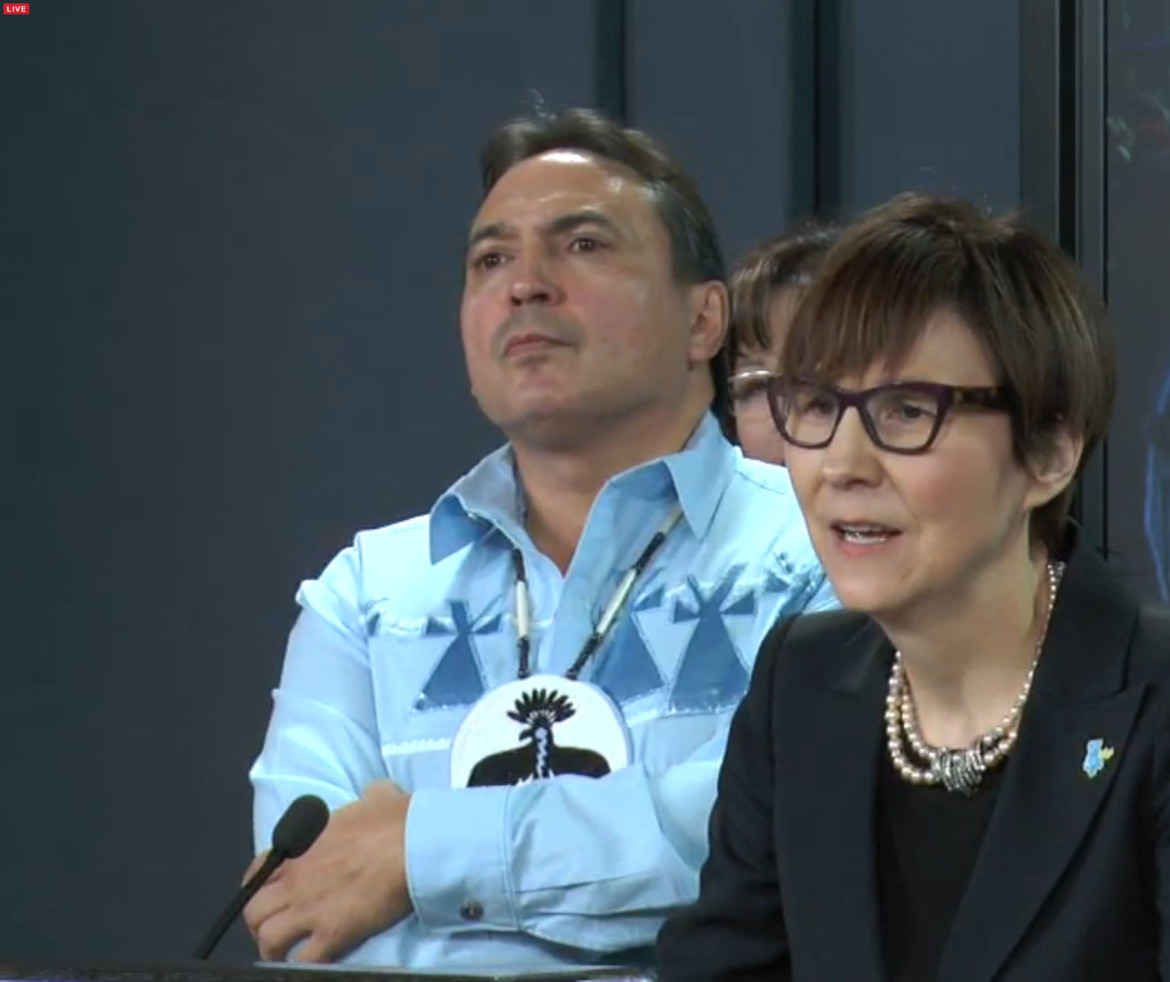By: Hayley Michaud and Evan Millar
Canada’s federal government has discriminated against First Nations children by not providing the same level of funding for child welfare services according to the Canadian Human Rights Tribunal on Tuesday morning.
A complaint made by Cindy Blackstock, executive director of The First Nations Child and Family Caring Society of Canada, argued that the federal government failed to provide equal funding for aboriginal child welfare, or child and family, services.
Blackstock and Assembly of First Nations Chief Perry Bellegarde held a press conference following the tribunal’s decision.
“Today, First Nations children win,” Bellegarde said.
Though the complaint was filed in 2007, the hearing didn’t begin until 2013 and final testimonies from 25 witnesses were heard in October 2014.
Shelley Charles, Elder and Advisor of Aboriginal Relations at Humber College’s North Campus, called the decision a good start.
“It’s a really important first step in actually acknowledging that there is a different way of treating children through the welfare system on-reserve than off-reserve,” she said.
“It’s about time that Canada was able to look at the inequities of funding compared to the other children across Canada,” she said.
Overrepresentation was another aspect addressed by Blackstock.
The 2011 National Household Survey by Statistics Canada found that close to half of all children and youth in the Canadian foster system were of First Nations despite only 4.3 per cent of the country’s entire population being aboriginal.
Research done by Blackstock into the government’s documents showed that the gap in funding for social services on reserves was between 22 and 34 per cent.
“When that gap closes, Canada wins as a country,” Bellegarde said.
“I want to dedicate this decision to all First Nations children who for years and for decades have been denied an equal opportunity to live the life they wished to have had,” Blackstock said.
She became emotional during her speech as she talked about the real impact of the discrimination.
“Children only get one childhood,” she said. “Don’t you think that the one thing in reconciliation we can get right is raising a generation of First Nations children who don’t have to recover from their childhoods?”
‘We’re hopeful’
When asked about their confidence in the new Trudeau government, Bellegarde was optimistic.
“We’re hopeful in the sense that the prime minister of Canada came to our AFN Chiefs Assembly and talked about the priorities. It’s the first time ever that a prime minister has come to a First Nations Chiefs forum,” he said.
Part of the ruling included requests to the panel to award compensation to each First Nations child taken into care since February 2006 to the date of the ruling.
The Caring Society requested the maximum amount of compensation – $20,000 – for each child, parent and sibling who was impacted by the child welfare practices on reserve.
For Charles, the inclusion of First Nations persons in executive choices is key.
“Aboriginal people should be involved at the very centre of any decisions going forward,” she said. “You’ll see really quickly that communities will be able to identify what their needs are beyond the very basic needs that are missing.”
The tribunal will work with the parties in the coming weeks to determine a process to decide the appropriate remedies and compensation.

